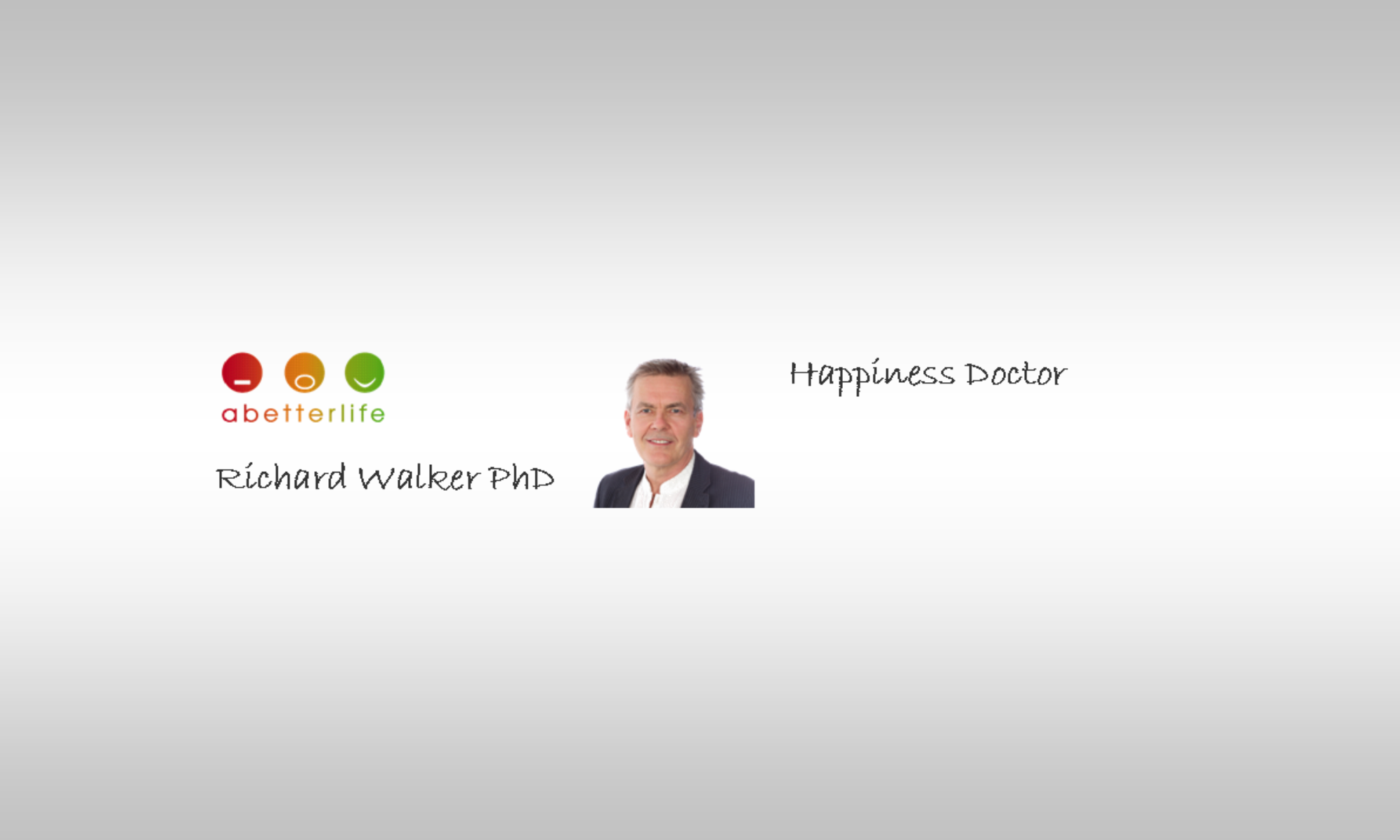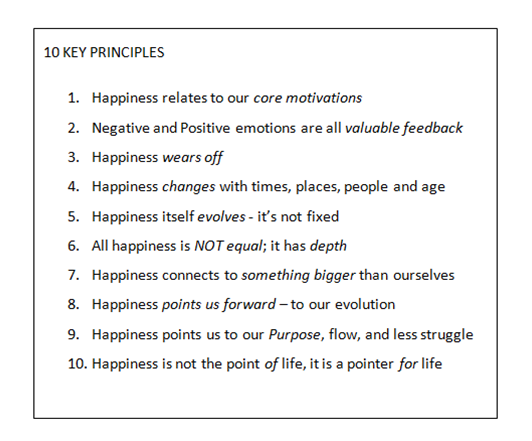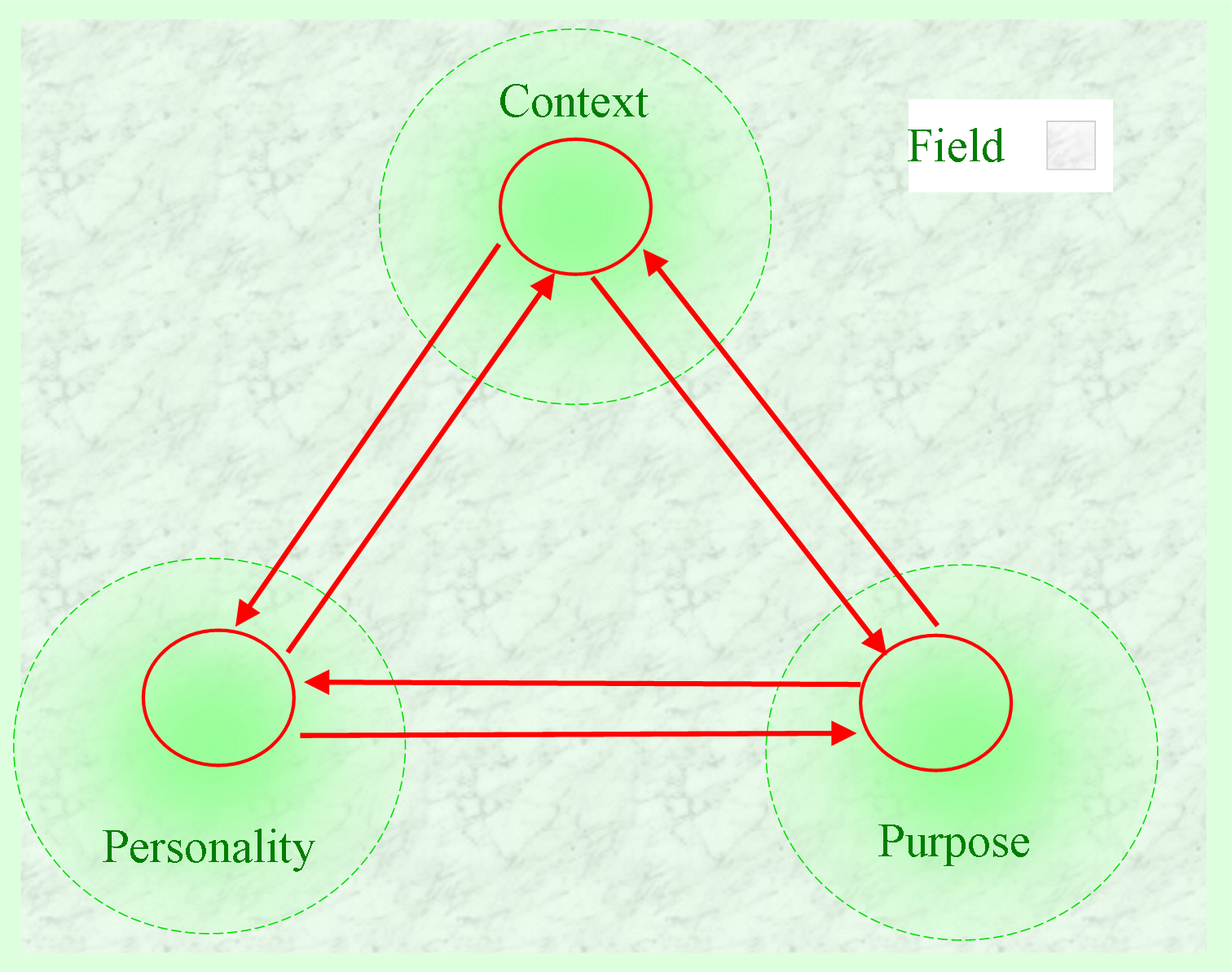Why should you look again at Happiness?
Because Happiness is not what you might think.
https://www.dropbox.com/s/byx0ynr0p8qdlzw/Happiness_1_It_Changes.mp3?dl=0
Or if you prefer, this is the text transcribed from the audio:
I actually did a PhD dissertation in happiness a few years back, and while I’m a physicist by education, I’ve been a hypnotherapist for the last 20 years.
Here’s the thing – I often find that happiness – or our ability to achieve and sustain self-contained happiness – is behind all the problems I deal with. Then if help resolve that core issue, then often the presenting problem or symptoms that people come to see me about with disappear! Now that’s quite interesting don’t you think?
But we all ought to know what happiness is for us, shouldn’t we? Well apparently not.
Seems we are pretty rubbish at predicting what will make us happy, and we even fib to ourselves. Research has shown that most of us think that we’re happy, but in fact something less than 15% of us ARE truly happy. So that’s interesting too, isn’t it?
Dan Gilbert who wrote the book ‘Stumbling on Happiness’ – and I recommend that book to you, as it’s quite funny as well as hard hitting (Dan’s also done some hilarious YouTube videos) – made it quite plain that we are indeed very bad at predicting what will actually make us happy. So that’s another interesting fact isn’t it?
You may not know this, but very serious intelligent people have studied happiness over several thousand years – back to Hippocrates in the earliest recorded history. As well as what makes us happy changing over time, the very nature of happiness itself has also changed over history.
In your own lifetime, if you think about it, your own idea of happiness has evolved over with you. What made you happy when you were one, two or three years old is not what made you happy when you were twelve; or what made you happy when you were twenty, or when you were thirty. I’m in my early 60s and I can tell you that what makes me happy now doesn’t look anything like what made me happy even 10 years ago.
Culture and geography – if you think about different cultures, or what makes people happy in, say London, might very well be different from what the average person might think of in Liverpool (I’m sure of that one!). Then what makes people happy in say, India, or in Nigeria, or in Scandinavia, or in America? And then within those places on smaller scales? Each of us individually of course is also unique. So can you see that there are potential problems in our thinking if we treat happiness as happiness as happiness? It isn’t, it wasn’t, and it won’t be. If happiness changes over all our lifetimes and over history, can you imagine how it must be that there is a different version of happiness in the future – already in the post (mail)?.



